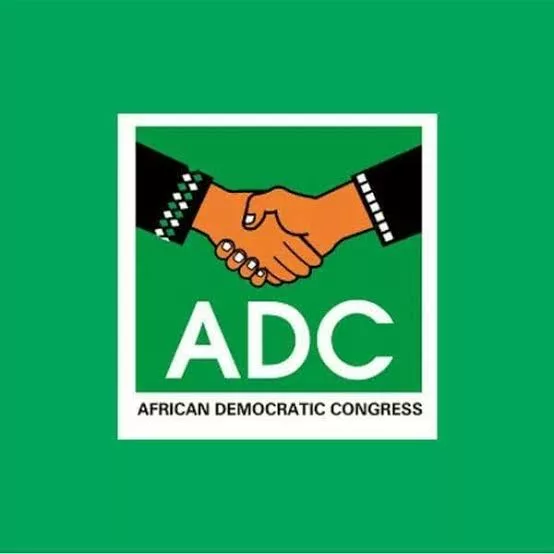A new dawn may be in the horizon for Nigeria-South Africa relations. Minister of State for Foreign Affairs, Bianca Odumegwu-Ojukwu, during her closing remarks at the ministerial session of the 11th Nigeria-South Africa Bi-National Commission in Cape Town, South Africa, requested for South Africa’s support for Nigeria’s bid to attain full membership in the G20 – the grouping of Brazil, Russia, India, China and South Africa (BRICS), and the New Development Bank – a multilateral development bank established by the BRICS states. Nigeria is also seeking South Africa’s support for leadership roles in thematic discussions of interest under South Africa’s G20 presidency, which officially began on December 1 2024.
The G20 or Group of 20, founded in 1999, is an intergovernmental forum comprising 19 sovereign countries, the European Union (EU), and the African Union, which works to address major issues related to the global economy. The sovereign states of the G20 alone (excluding the EU and AU) account for around 85% of gross world product (GWP), 75% of international trade, 56% of the global population, and 60% of the world’s land area. When the EU and the AU are included, the G20 comprises 78.9% of global population and 83.9% of global CO2 emissions from fossil energy.
BRICS, formerly called BRIC, until South Africa was included in the group in 2010, is an intergovernmental organization currently made up of nine countries – Brazil, Russia, India, China, South Africa, Iran, Egypt, Ethiopia, and the United Arab Emirates. It is now more popularly known as BRICS+ after the admission of new members during its 15th summit in August 2023. BRICS institutions are considered an alternative to institutions such as those led by nations of the G7 bloc. Combined, the BRICS members encompass about 30% of the world’s land surface and 45% of the world’s population. All the five members (before the August 2023 expansion), are members of the G20, with a combined nominal GDP of US$28 trillion (about 27% of the gross world product), a total GDP (PPP) of around US$65 trillion (35% of global GDP PPP), and an estimated US$5.2 trillion in combined foreign reserves.
As the only African member of both the G20, and the BRICS (until the August 2023 expansion which brought in Ethiopia and Egypt), membership in these groups give South Africa tremendous visibility at the tables where some of the most important global economic decisions are taken. South Africa also successfully hosted the World CUP in 2010 and equally successfully hosted the 15 BRICS summit in August 2023. In the same 2023, South Africa led a high-powered African delegation that included Egypt, Senegal, Congo-Brazzaville, Comoros, Zambia, and Uganda and met both Presidents Zelensky of Ukraine and Putin of Russia with a 10-point proposal to end the Russo-Ukraine war. Though the delegation received lukewarm reception from both the Ukrainian and Russian Presidents, it was probably the first time that Africans had the confidence to try to broker peace for warring European nations. The effort alone was an indication that South Africa is becoming a major player not just in economic affairs (as indicated by its membership of both the G-20 and BRICS) but also in the political arena.
Perhaps because of the above, there has been a sort of Cold War between Nigeria and South Africa since the end of Apartheid in South Africa in 1994. Elsewhere I called the attitude of some Nigerians to South Africa’s economic and political successes as ‘South African envy’. Such Nigerians wrongly see South Africa as usurping the roles that should belong to their country. This sense of entitlement comes to the fore very often when Nigerian leaders speak. Nigerian leaders also never fail to remind anyone who cares to listen of its contributions towards the end of the Apartheid regime in South Africa, forgetting that in international relations, the respect a country commands is not dependent on its past benevolence but on the current leverages it brings to the table.
Besides a certain entitlement for its contributions in the fight against Apartheid in South Africa, Nigerians often boast of their population and mineral resources. For instance, in responding to the disparaging remarks against Nigeria by Kemi Badenoch, the leader of Britain’s Conservative party, whose parents are Nigerians, Vice President Shettima boasted that “the greatest black nation on earth is the nation called Nigeria.”. He further boasted: “One out of every three, four black men is a Nigerian and by 2050, Nigeria will surpass the United States, and will be the third most populous nation on earth.”
Nigerians need credible journalism. Help us report it.
Support journalism driven by facts, created by Nigerians for Nigerians. Our thorough, researched reporting relies on the support of readers like you.
Help us maintain free and accessible news for all with a small donation.
Every contribution guarantees that we can keep delivering important stories —no paywalls, just quality journalism.
Unfortunately many Nigerians – like VP Shettima – seem to wrongly believe that having a big population, on its own, is necessarily evidence of global power. It is not. What, if one may ask, was the population of the Britain at the time when it had the British empire from 1583 – 1997?. The British Empire governed over 458 million people which was about 20% of the world’s population and controlled 33,670 square kilometres which covered over 25% of the Earth’s land area. Remarkably the UK’s population at that time was a mere 43 million people. Have we ever heard China, with a population of 1.411 billion people (as of 2023) or India with a population of 1.429 (as of 2023) boasting of its population? It is the same sense of entitlement when we boast of our natural resources, essentially our and gas resources, forgetting that these, on their own, cannot make any country great and therefore cannot be a valid metric for our sense of entitlement. In any case almost every other African country is now also an oil-producing country.
In essence when Nigeria requested for South Africa’s assistance for its bid to attain full membership in the G20, BRICS, and the BRICS’ New Development Bank, and for it to be given leadership roles in thematic discussions of interest under South Africa’s G20 presidency, it is literarily coming down from its high horse. By implicitly accepting South Africa’s leadership role in the continent, it makes it easier for collaboration between the two countries. And there is nothing to be ashamed of about it. America was a British colony and fought a bitter war of independence from Britain from April 19, 1775 – September 3, 1783. Today, Britain and the US are very close allies, with Britain accepting American leadership in recognition of the current realities and global configuration of power. If Britain had clung to the fact that America was once its colony and therefore deserved to be respected as the leader, that collaboration and alliance wouldn’t have been possible.
Perhaps the new tacit acceptance of South African leadership by Nigeria paved the way for the remarkably conciliatory speech by South African President Cyril Ramaphosa, on the occasion of the South Africa-Nigeria Bi-National Commission on December 3 2024. In his speech, he signalled a willingness to work with Nigeria as partners and even acknowledged the role Nigeria played during the country’s struggle against Apartheid.
“We are two countries united in purpose and vision. We will remain forever grateful to Nigeria for its leading role in the international campaign to end apartheid in South Africa,” he said and declared that he looked forward to seeing more Nigerian companies investing in South Africa while announcing a simplified visa process for Nigerian business people to travel to South Africa. Under the simplified visa process, qualified Nigerian business people can be granted a five-year multiple entry visa. Additionally, tourists from Nigeria will be able to apply for a visa without submitting a passport.
South Africa will also benefit from an improved cooperation with Nigeria. There are over 100 South African businesses in Nigeria, with the leading ones being MTN Group, Shoprite, Multichoice, Standard Bank, Remgro, Pick ‘n Pay Holdings, Clover Industries and Naspers. In contrast there are less than ten registered Nigerian companies in South Africa – not counting churches. Six Nigerian companies invested at least $142m in South Africa between 2008 and 2020, with the Dangote Group and GZI accounting for the lion’s share of the investment. In 2021, Nigeria’s Access Bank acquired South Africa’s Grobank for $60m. The Nigerian fintech company, Paystack, and airline, Air Peace, also have imprints in the South African business environment. Several Nigerian businesses have, however, experienced little success in South Africa. Companies in this category include Thisday Group, Arik Air, and Bellview Airlines. Similarly, a raft of South African businesses has in recent years exited Nigeria – from popular supermarket chain, Shoprite Holdings, to the less-known Nampak, Africa’s biggest packaging company. A closer relationship will help the two countries to work around these challenges, including communal level issues affecting Nigerians living in South Africa which has led to episodic attacks in the country against African migrants.
The bilateral trade between Nigeria and South Africa has also been growing and reached $1.6bn in 2006, up from $16.5m in 1999. Nigeria accounts for over 60% of South Africa’s trade in West Africa, and as of 2020, trade between both countries stood at $2.9bn – with the balance of trade tilting in favour of Nigeria which mostly exports oil to the country. In 2021 Nigerian exports were valued at $2.23bn (mostly from exporting oil products) while South African exports stood at $569m. Improved relations between the two countries will further boost bilateral trade.
The crucial question now is whether the Nigeria-South Africa Bi-National Commission, will now walk the talk?
Jideofor Adibe is a professor of Political Science and International Relations at Nasarawa State University and founder of Adonis & Abbey Publishers (www.adonis-abbey.com). He can be reached at: 0705 807 8841 (WhatsApp and Text messages only).
Support PREMIUM TIMES' journalism of integrity and credibility
At Premium Times, we firmly believe in the importance of high-quality journalism. Recognizing that not everyone can afford costly news subscriptions, we are dedicated to delivering meticulously researched, fact-checked news that remains freely accessible to all.
Whether you turn to Premium Times for daily updates, in-depth investigations into pressing national issues, or entertaining trending stories, we value your readership.
It’s essential to acknowledge that news production incurs expenses, and we take pride in never placing our stories behind a prohibitive paywall.
Would you consider supporting us with a modest contribution on a monthly basis to help maintain our commitment to free, accessible news?
TEXT AD: Call Willie - +2348098788999


















 English (US) ·
English (US) ·